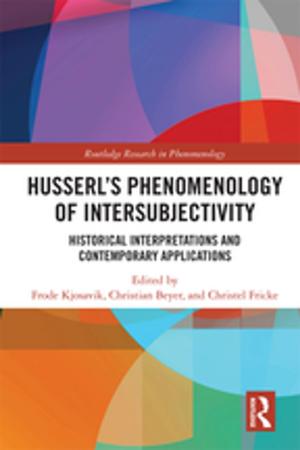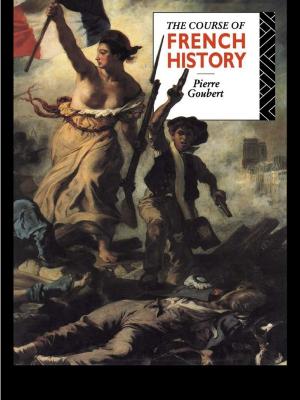| Author: | Chris Murray | ISBN: | 9781317008347 |
| Publisher: | Taylor and Francis | Publication: | February 24, 2016 |
| Imprint: | Routledge | Language: | English |
| Author: | Chris Murray |
| ISBN: | 9781317008347 |
| Publisher: | Taylor and Francis |
| Publication: | February 24, 2016 |
| Imprint: | Routledge |
| Language: | English |
To Samuel Taylor Coleridge, tragedy was not solely a literary mode, but a philosophy to interpret the history that unfolded around him. Tragic Coleridge explores the tragic vision of existence that Coleridge derived from Classical drama, Shakespeare, Milton and contemporary German thought. Coleridge viewed the hardships of the Romantic period, like the catastrophes of Greek tragedy, as stages in a process of humanity’s overall purification. Offering new readings of canonical poems, as well as neglected plays and critical works, Chris Murray elaborates Coleridge’s tragic vision in relation to a range of thinkers, from Plato and Aristotle to George Steiner and Raymond Williams. He draws comparisons with the works of Blake, the Shelleys, and Keats to explore the factors that shaped Coleridge’s conception of tragedy, including the origins of sacrifice, developments in Classical scholarship, theories of inspiration and the author’s quest for civic status. With cycles of catastrophe and catharsis everywhere in his works, Coleridge depicted the world as a site of tragic purgation, and wrote himself into it as an embattled sage qualified to mediate the vicissitudes of his age.
To Samuel Taylor Coleridge, tragedy was not solely a literary mode, but a philosophy to interpret the history that unfolded around him. Tragic Coleridge explores the tragic vision of existence that Coleridge derived from Classical drama, Shakespeare, Milton and contemporary German thought. Coleridge viewed the hardships of the Romantic period, like the catastrophes of Greek tragedy, as stages in a process of humanity’s overall purification. Offering new readings of canonical poems, as well as neglected plays and critical works, Chris Murray elaborates Coleridge’s tragic vision in relation to a range of thinkers, from Plato and Aristotle to George Steiner and Raymond Williams. He draws comparisons with the works of Blake, the Shelleys, and Keats to explore the factors that shaped Coleridge’s conception of tragedy, including the origins of sacrifice, developments in Classical scholarship, theories of inspiration and the author’s quest for civic status. With cycles of catastrophe and catharsis everywhere in his works, Coleridge depicted the world as a site of tragic purgation, and wrote himself into it as an embattled sage qualified to mediate the vicissitudes of his age.















